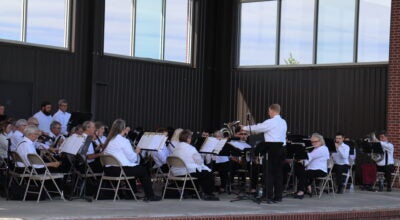Sign ordinance may need revision
Published 7:00 am Saturday, May 23, 2015
An ordinance to revamp the usage of signs around Picayune may need more work.
The multiphase ordinance was set in motion last year with the intent of reducing the presence of temporary signs along right of ways and in medians, while also improving storefronts.
Code Enforcement Officer Tom Milar said phase I, which deals with the temporary signs, is still being enforced, when time allows. He said at least once a week he will tour the city looking for temporary signs, but as soon as they are removed another takes its place.
Other hurdles in the enforcement of the ordinance involve resistance from the business owners, especially when it comes to phase II, which aimed to eliminate temporary signs on the front of a business.
Mayor Ed Pinero said the city is trying to work with the businesses and find the best possible way to improve the facades, without putting financial stress on the owner.
“We know times are tough so we don’t want to put any undue burden on them,” Pinero said.
Pinero said the best course of action may be to establish a committee and hold community meetings where the business owners and community members can share their own ideas on how to move forward with phase II.
Milar agrees that their input would be essential in creating an ordinance that fits the specific needs of Picayune, instead of adopting an ordinance established by another city.
“Our demographics are totally different from other cities,” Milar said.
There are several violations to the ordinance already taking place, such as temporary signs in front of newly opened businesses. But Milar says it’s difficult to enforce an ordinance that prevents a business from letting the public know they just opened.
Another violation of the ordinance involves people standing at the side of the road holding signs or waving at potential customers. On one hand the practice is a violation, but those employees are typically part of a work program under entities such as Bridgeway Apartments, where individuals with mental or physical handicaps are provided with jobs, such as holding a sign at the roadside. To have the business owner abide by the ordinance would mean those individuals would be without a paycheck, Milar said.
One idea Milar has to address the temporary signs at a new business would be to implement a time limit, such as up to 45 days, or only during special events such as a grand opening.
“If you work with someone they will work back with you,” Milar said.





